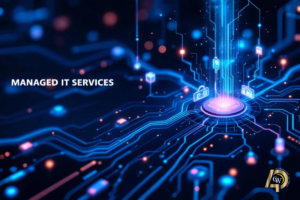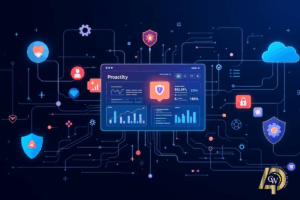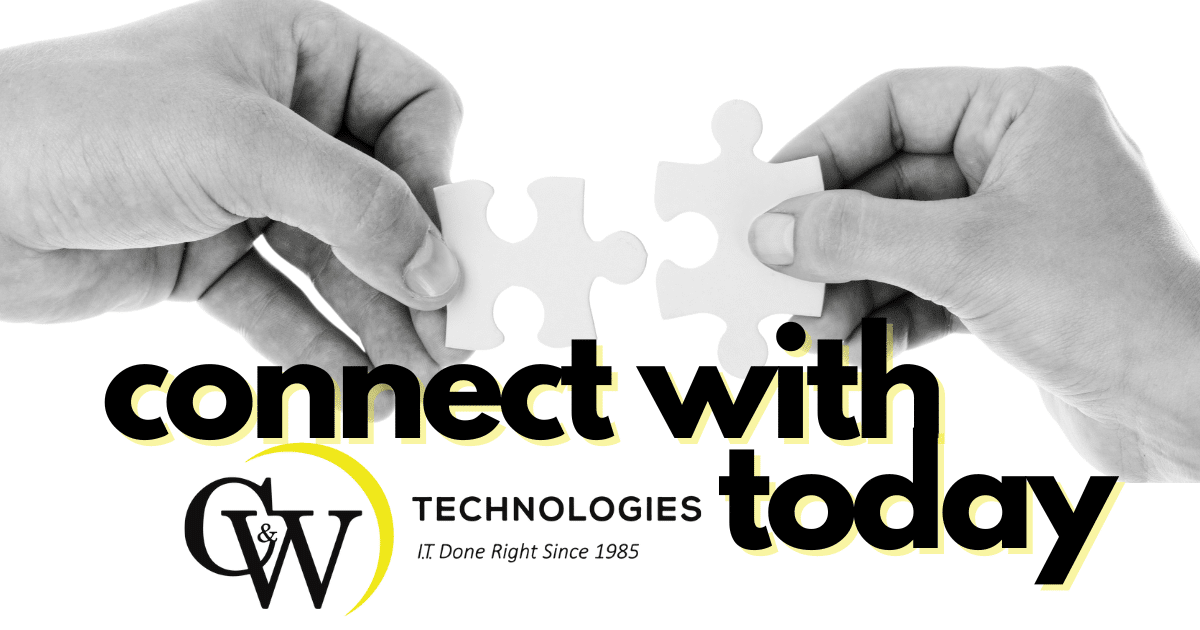3 Innovative Ways AI is Revolutionizing Business Operations

Boost your business with AI-Powered Tools
Are you keeping up with the latest advancements in AI? As technology continues to evolve, it’s more important than ever to stay up to date. From predictive analytics to personalized marketing, AI is changing the way we do business. Take the time to learn about the latest tools and techniques and see how they can benefit your organization. Let’s stay ahead of the curve and continue to innovate with #AI!
The Wave of Artificial Intelligence
With the rise of technology and #innovation, it’s more important than ever to stay competitive and explore new ways to improve business operations. AI-powered tools have the potential to transform the way we do business. From streamlining processes to improving customer experience, AI can help us achieve our goals more efficiently and effectively.
AI has been used in various ways to improve business operations and achieve better outcomes. To name a few, AI efforts may be seen in areas such as customer service, marketing, and cybersecurity.

Local IT Partner: Better Services for Stuart Businesses

IT Services – Scaling Your Stuart Business Strategically and Paving the Way for Growth

Small Business IT Support – Why Proactive IT Support is a Game Changer for Stuart’s Small Businesses

IT Support Stuart FL – When Is It Time to Outsource Your IT?

4 Compelling Reasons to Utilize Managed IT Services in Florida for Your Business Growth

40 Years of C&W: Our Story, Our People, Our Future as an Experienced IT Company
Hello world!

IT Helpdesk for Small to Medium Sized Businesses

8 Common IT Problems Solved by Managed IT Services

Benefits of Proactive IT: Boost Your Business Efficiency

Achieving IT Scalability in 2025

Overwhelmed by the Number of IT Vendors? Tech Overload Frustrations
AI: The Game-Changer for Modern Customer Service
Many businesses use AI-powered chatbots to provide 24/7 customer support, answer common questions, and route inquiries to the appropriate department. AI is being used in customer service to provide quick and efficient support to customers. Here are some ways #AICustomerService can be utilized:
- Chatbots: AI-powered chatbots can interact with customers in real-time, answering common questions, providing information about products and services, and resolving simple issues.
- Voice assistants: AI-powered voice assistants can provide customer support over the phone, guiding customers through troubleshooting steps and resolving issues without the need for human intervention.
- Personalization: AI can help businesses personalize the customer experience, providing customized recommendations and offers based on customer preferences and behavior.
- Predictive analytics: AI can analyze customer data to identify patterns and predict customer needs, allowing businesses to proactively address issues and provide a better customer experience.
- Social media monitoring: AI can monitor social media channels for mentions of a business and respond to customer inquiries and complaints in real-time.
- Automated ticket routing: AI can analyze support tickets and route them to the appropriate agent based on the issue and skill set, reducing response times and improving efficiency.
By using AI in customer service, businesses can provide faster, more efficient support to their customers, improving satisfaction and loyalty. However, it’s important to strike the right balance between AI-powered automation and human interaction, to ensure that customers feel valued and heard.
Transform Your Marketing Strategy with AI Technology
AI is being used in marketing to help businesses personalize their marketing efforts, analyze customer data, and optimize campaigns for better performance. Here are some ways #AIMarketing can be implemented:
- Personalization: AI can analyze customer data to provide personalized recommendations, offers, and experiences to individual customers, improving engagement and conversion rates.
- Predictive analytics: AI can analyze data to identify patterns and predict future outcomes, helping businesses make data-driven decisions about their marketing strategy.
- Automated content creation: AI can generate content such as blog posts, social media updates, and even video and audio content, saving time and resources.
- Chatbots: AI-powered chatbots can interact with customers in real-time, answering questions and providing support, improving customer satisfaction and engagement.
- Ad optimization: AI can analyze ad performance and optimize campaigns in real-time, adjusting targeting, ad content, and other factors to improve ROI.
- Voice search optimization: AI can optimize websites and content for voice search, helping businesses rank higher in voice search results and reach more customers.
By using AI in marketing, businesses can improve the effectiveness and efficiency of their campaigns, driving better results and ROI. However, it’s important to remember that AI is a tool and not a replacement for human creativity and intuition, and that a human touch is still essential for building lasting relationships with customers.
Drive Your Business Forward with AI Technology
AI is being used in business to automate and streamline their operations, improve customer service, and increase efficiency. Here are some ways #AITechnology can be used in business:
Automation:
AI can automate routine tasks such as monitoring network performance, patch management, and backups.
Predictive Maintenance:
AI can monitor devices and networks to predict when hardware failure is likely to occur, allowing your IT team to perform preventative maintenance and minimize downtime.
Security:
AI can be used to detect and respond to cyber threats in real-time, identifying and blocking malicious traffic and alerting IT staff to potential vulnerabilities.
Data analysis:
AI can analyze data from network devices and applications to identify patterns and trends, allowing your IT team to proactively address issues before they become major problems.
The world of technology is constantly evolving, with new advancements and innovations emerging every day. From artificial intelligence to the Internet of Things, these developments are reshaping the way we live and work.
Revolutionize Your Business today with C&W Technology!
At C&W Technology, we understand the importance of staying ahead of the curve and leveraging the latest technologies to drive business success. Our company can help you implement AI solutions in various areas of your business, from customer service to marketing and IT operations so make sure to visit our website so you can check our services and what our clients say about us.
Contact us today to learn more about how AI technology can benefit your business and how our services can help you stay competitive in a constantly evolving marketplace. Let’s transform your business together with the power of AI! So why wait? The future is here, and it’s time to embrace it for the growth and success of your business.
Frequently Asked Questions (FAQs)
Q: How can partnering with an AI-focused Managed Service Provider benefit my business?
A: By partnering with an AI-focused MSP (Managed Service Providers), businesses can leverage advanced AI technologies without the need for in-house expertise. These providers offer services like AI model development and deployment, data analytics, predictive modeling, natural language processing, image recognition, and machine learning solutions, empowering businesses to enhance decision-making, automate processes, and drive innovation.
Q: Why are IT systems essential for businesses?
A: IT systems are essential for businesses as they enable streamlined operations, enhanced productivity, effective communication, secure data management, improved customer service, strategic decision-making, innovation through technology adoption, and competitive advantage in the digital marketplace. Investing in robust IT systems is key to driving business growth and success.
Q: How can businesses determine when to keep operations in-house versus outsourcing?
A: Businesses can decide whether to keep operations in-house or outsource by evaluating factors such as core skills, cost, available resources, needed expertise, quality expectations, compliance demands, strategic value, scalability, market competition, and the ability for innovation and growth internally.
Q: Why are business objectives important?
A: Business objectives are crucial for providing direction and focus to an organization. They help in setting priorities, facilitating clear communication among stakeholders, motivating employees by defining their roles in achieving common goals, measuring progress, driving performance improvement, and ultimately contributing to the success and sustainability of the business.
Q: How does technology impact support and outsourcing services?
A: Technology plays a crucial role in support services and outsourcing services by enabling remote work, automating routine tasks, facilitating communication and collaboration, and providing tools for performance monitoring and management. Advances in areas such as cloud computing, artificial intelligence, and cybersecurity are continually transforming how these services are delivered and managed.
Q: Why is it important to identify and prioritize business needs?
A: Identifying and prioritizing business needs is crucial for strategic planning and resource allocation. It helps ensure that critical requirements are met first, preventing resource wastage on less important aspects. This approach supports better decision-making, improves operational efficiency, and enhances the likelihood of achieving business objectives.
Q: What are some common types of technology solutions used by businesses?
A: Common types of technology solutions used by businesses include Customer Relationship Management (CRM) systems, Enterprise Resource Planning (ERP) software, Business Intelligence (BI) and analytics platforms, cybersecurity tools, cloud computing services, collaborative and communication tools, and e-commerce platforms.
Q: What is an outsourcing company?
A: An outsourcing company is a business that provides services or performs tasks on behalf of other organizations. These services can range from customer support, IT services, manufacturing, accounting, and HR management to specialized functions such as software development or digital marketing. Outsourcing companies allow businesses to delegate non-core operations, enabling them to focus on their primary objectives.
Q: How do infrastructure services differ from IT services?
A: While infrastructure services are a subset of IT services focusing on the physical and virtual resources needed to support IT operations, IT services encompass a broader range of offerings including software development, application management, cybersecurity, and technical support. Infrastructure services lay the groundwork upon which other IT services and operations are built.
Q: What are outsourced services?
A: Outsourced services refer to any business process or function that is contracted out to a third-party provider rather than handled in-house. This can include IT support, customer service, accounting, human resources, marketing, and manufacturing among others. Outsourcing is used by businesses to reduce costs, access specialized expertise, and improve focus on core business activities.
Q: What are the challenges of implementing business technology?
A: Challenges of implementing business technology include the high cost of adoption, resistance to change from employees, integration issues with existing systems, data security concerns, and the need for ongoing maintenance and updates. Proper planning, training, and support can help overcome these challenges.
Q: Why is industry expertise important?
A: Industry expertise is crucial for businesses and professionals because it enables them to make informed decisions, innovate, maintain competitive advantage, meet regulatory requirements, and effectively address customer needs. It also enhances credibility and trust with clients, stakeholders, and the market at large.
Q: What does it mean to outsource IT services?
A: Outsourcing IT services involves hiring external service providers to manage, deliver, or support specific information technology functions or processes that could be performed in-house. This can range from software development, network management, cybersecurity, data analytics, to cloud computing services, among others.

